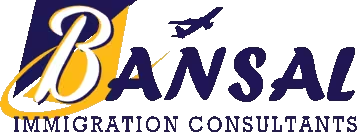Skills Assessment for Trades
Skills assessment for trades verifies that your overseas or Australian trade qualifications and practical experience meet Australian occupational standards for migration, licensing or employment. Trades Recognition Australia (TRA) runs the main assessment programs and issues outcomes used by the Department of Home Affairs and state/territory licensing bodies.
Overview
Which applicants need a trade skills assessment
If you have trade or associate‑professional skills (construction, electrical, plumbing, automotive, cook, welder, etc.) and you want to:
- apply for skilled migration to Australia, or
- satisfy employer / visa requirements (e.g., TSS 482), or
- obtain occupational recognition or licensing in Australia,
then you will usually need a TRA skills assessment (or the relevant assessing authority specified for your occupation).
TRA programs (choose by occupation, visa type, location)
- Provisional Skills Assessment (PSA) — preliminary step for some international graduates before entering the Job Ready Program.
- Job Ready Program (JRP) — for eligible international graduates with an Australian trade/associate qualification to demonstrate competence through employment and monitored milestones.
- Migration Skills Assessment (MSA) — for applicants seeking permanent migration; assesses skills against Australian occupational standards.
- Offshore Skills Assessment Program (OSAP) — for applicants outside Australia seeking a migration skills assessment.
- TSS Skills Assessment — for Temporary Skill Shortage (subclass 482) visa applications where a skills assessment is required.
- Migration Points Advice (MPA) — optional advice to Home Affairs on how many migration points a qualification may attract.
Use the TRA Program Pathfinder to select the correct program for your circumstances.
What TRA assesses
- Qualification level (AQF equivalence) for your occupation.
- Practical competency: duties, experience, hours worked, and demonstrable trade skills.
- Evidence of any required licensing or registration.
- Program‑specific requirements (e.g., JRP employment milestones).
TRA compares your documentation and experience to Australian occupational criteria and either issues a suitable outcome, a provisional outcome with conditions (e.g., complete JRP), or not suitable.
Documents typically required
- Passport biographical page / ID.
- Certified copies of trade qualification(s) and full academic transcripts.
- Detailed employment references that specify duties, start/end dates, hours per week and employer contact details.
- Evidence of licensing or registration if applicable.
- Program‑specific forms (PSA/JRP forms) and any supporting evidence.
- Accredited English translations for non‑English documents.
Always check the specific evidence checklist in the TRA program guidelines for your occupation.
How to apply (overview)
- Use TRA’s Program Pathfinder and Australian Qualifications by Occupation to confirm program/AQF level.
- Prepare and certify all required documents; get translations if needed.
- Create an account and lodge your application via the TRA online portal; pay the fee.
- Respond promptly to requests for additional information or verifications.
- Receive TRA outcome and follow any further steps (e.g., JRP enrolment, RTO training, licensing applications).
Outcomes, validity and review
- Outcomes may be “suitable”, “provisional” (requires further steps) or “not suitable”.
- Processing times and validity periods vary by program and completeness of documents.
- TRA publishes an Assessment Review Policy — if you disagree with an outcome you can apply for review within the published timeframe.
Licensing and employment next steps
- Some trades also require state/territory licensing (e.g., electrical, gasfitting, building). A positive TRA outcome does not automatically grant a licence — contact the relevant regulator.
- Use TRA’s RTO Finder if you need bridging training or to meet licensing requirements.
Practical tips
- Remove sensitive identifiers (e.g., tax file numbers) from supporting documents if advised.
- Ensure employment references clearly describe actual tasks and hours — generic references may delay assessment.
- Keep certified originals and digital copies; follow TRA’s certification and translation rules exactly.
- If unsure about visa strategy, consult the Department of Home Affairs or a registered migration agent (TRA does not provide migration advice).
Where to get help
- Start with the TRA Program Pathfinder, the program guidelines and FAQs on the TRA website.
- For visa matters contact the Department of Home Affairs. For licensing contact the relevant state/territory regulator.
- Consider a registered migration agent or approved RTO if you need help with complex cases or bridging training.
Request Call Back
Get Expert Help
Melbourne VIC 3000
Adelaide SA 5000
